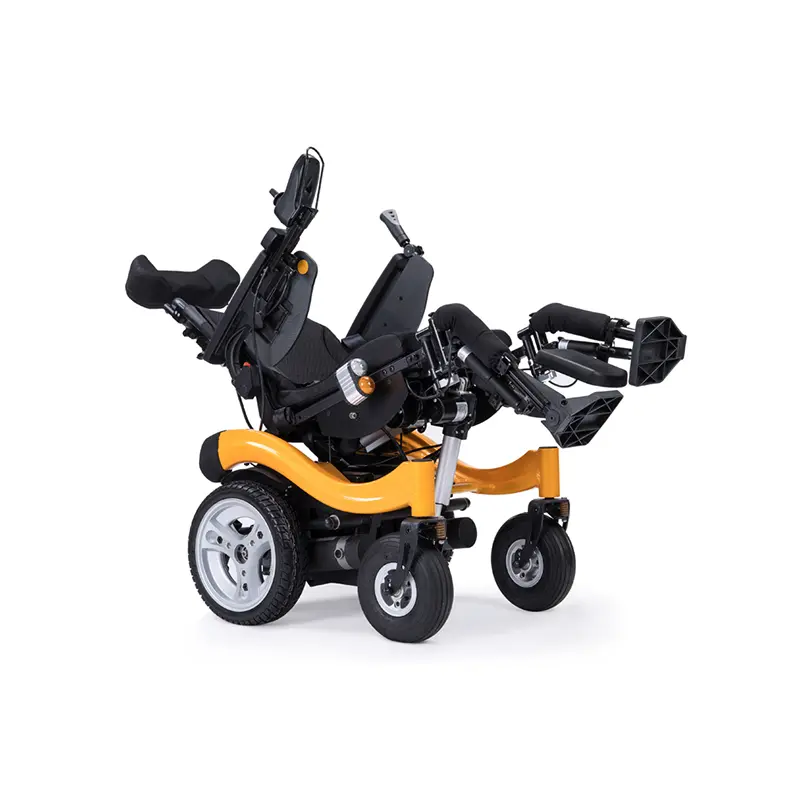Standards that electric wheelchairs need to comply with in international trade
As an important rehabilitation assistive device, electric wheelchairs play an increasingly important role in international trade. In order to ensure the safety, effectiveness and compliance of electric wheelchairs, countries and regions have formulated a series of standards and regulations. The following are the main standards that electric wheelchairs need to comply with in international trade:
1. EU market access standards
EU Medical Device Regulation (MDR)
Electric wheelchairs are classified as Class I medical devices in the EU market. According to EU Regulation (EU) 2017/745, electric wheelchairs exported to EU member states must meet the following requirements:
Compliant EU Authorized Representative: Select a compliant and experienced EU Authorized Representative to assist manufacturers in quickly and accurately solving various problems.
Product registration: Submit a product registration application to the member state where the EU representative is located and complete the registration letter.
MDR technical documents: Prepare CE technical documents that meet the requirements of the MDR regulations. At the same time, the technical documents also need to be kept by the EU representative for EU official spot checks.
Declaration of Conformity (DOC): Wheelchairs belong to Class I devices, and a declaration of conformity is also required.
Test standards
EN 12183: Applicable to manual wheelchairs with a load not exceeding 250kg and manual wheelchairs with electric assistive devices
EN 12184: Applicable to electric wheelchairs with a maximum speed not exceeding 15 km/h and carrying one and a load not exceeding 300 kg
2. US market access standards
FDA 510(k) certification
Electric wheelchairs are classified as Class II medical devices in the United States. To enter the US market, you need to submit a 510K document to the FDA and accept the FDA’s technical review. The principle of FDA’s 510K is to prove that the declared medical device is substantially equivalent to the device that has been legally marketed in the United States.
Other requirements
Registration certificate: Electric wheelchairs exported to the United States must also provide a registration certificate.
Production manual: Provide a detailed product manual.
Production license: A production license that proves that the production process complies with regulations.
Quality control records: Show the quality control records of the product production process.
Product inspection report: Provide product inspection report to prove product quality
3. UK market access standards
UKCA certification
Electric wheelchairs exported to the UK are Class I medical devices according to the requirements of UKMDR2002 medical device regulations and need to apply for UKCA certification. After June 30, 2023, Class I medical devices must be marked with the UKCA mark before they can be exported to the UK.
Requirements
Specify a unique UKRP: Manufacturers need to specify a unique UK Responsible Person (UKRP).
Product registration: UKRP has completed product registration with MHRA.
Technical documents: There are CE technical documents or UKCA technical documents that meet the requirements.
4. International standards
ISO 13485
ISO 13485 is an international standard for medical device quality management systems. Although it is not a direct requirement for market access, it provides quality assurance for the design and production of medical devices.
Conclusion
Electric wheelchairs need to comply with strict standards and regulations in international trade to ensure the safety and effectiveness of products. Manufacturers must understand the regulatory requirements of the target market and ensure that their products meet the relevant testing standards and technical specifications. By complying with these standards, electric wheelchairs can smoothly enter the international market and provide high-quality rehabilitation assistive devices to users around the world.
Post time: Dec-16-2024


